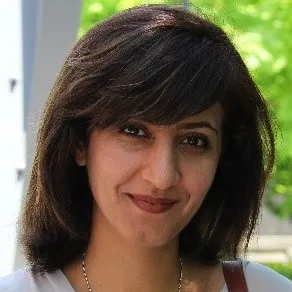
Dr. Mashid Ahmadi
Assistant Professor
Department of Materials Science and Engineering
Tickle College of Engineering
University of Tennessee, Knoxville
Monday, July 11, 2022
Solar energy is one of the most promising renewable energy sources. Research and development of solar cells have gained more value. Recent development in some novel materials has opened possibilities for the production of low-cost and highly efficient solar cells. One such materials system is hybrid organic-inorganic metal halide perovskites.
In recent years, the power conversion efficiency (PCE) of metal halide perovskites (MHP) solar cells have been rapidly improved with PCEs exceeding 25.5% for a single-junction solar cell. Beyond photovoltaic applications, the development of these materials for other applications such as light-emitting diodes (LEDs) photodetectors, and ionizing radiation sensors has been remarkable thanks to their unique optoelectronic properties.
The key remaining challenges blocking widespread application of these materials are their chemical instability and environmental sensitivity. In this talk I will discuss the use of automated laboratory robotics and the use of artificial intelligence/machine learning (AI/ML) to accelerate the discovery and design of compositions and materials processing toward optimized properties including stability of intrinsic materials for solar cells and other applications.
* This meeting is offered as a professional development hour for Tennessee-licensed engineers and architects.
The presentation meets the TN State Board of Architectural and Engineering Examiners’ continuing education requirements. It will consist of at least 50 minutes of prepared presentation with discussion reserved for the time after the meeting. TSK does not guarantee approval, but strictly meets the Board-specified requirements and issues a certificate of attendance.
The State Board does not pre-approve such hours. It is the responsibility of each PE or architect to determine whether the topic conduces to proficiency in her or his field of professional practice.
